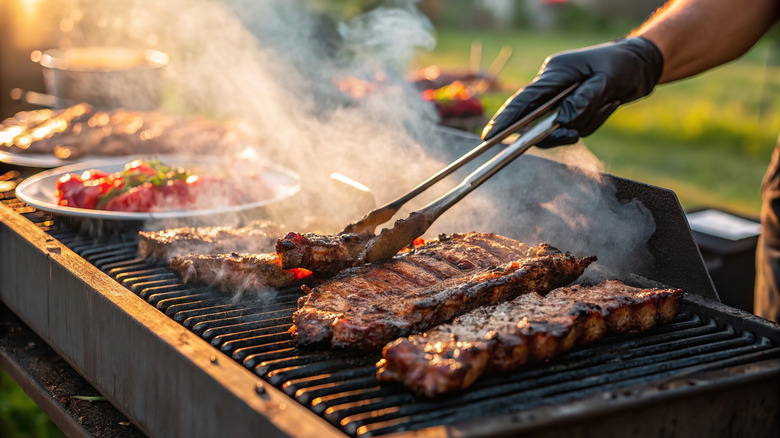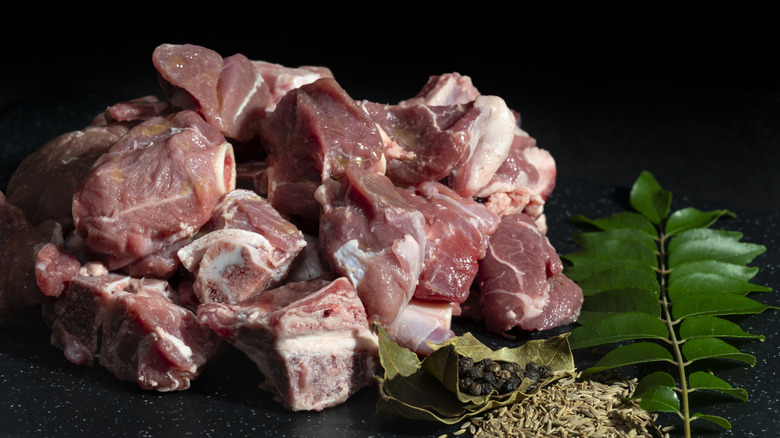Not Beef, Nor Pork, This Vintage Meat Once Ruled BBQ
When you think of barbecue, meats like beef and pork likely come to mind immediately, especially if you're in the United States. The average American consumes 84 pounds of beef and 66 pounds of pork each year. While one might conclude that such meats were always the stars of the American barbecue circuit, over 150 years ago, you would find a much different meat gracing grills: goat. Today, goat has fallen from popularity, with Americans consuming only 5 pounds of this once beloved game per year.
Goat meat actually has a long history as a barbecue dish. In fact, it was arguably among the very first barbecue meats. Early Spanish settlers in what is now Texas frequently feasted on spit-roasted goat meat back in the 1600s. For a long time, goat remained fairly popular in regional barbecues throughout Texas and western portions of the country. A large part of its popularity stemmed from Mexican influence, with goat and lamb dishes ubiquitous in central Mexican cuisine. Unfortunately, the very reason goat meat became popular to begin with — the influence of immigrant culture — may have also contributed to its downfall.
The xenophobic stigma of ethnic food likely contributed to goat gradually disappearing from menus nationwide. The meat gained an unfair reputation as a chewy, gamey food. European influences began to dominate the American palate, with early settlers bringing in livestock such as cows and pigs rather than goats. As the U.S. food system advanced, government subsidies for beef and pork production solidified these meats as the backbone of the country's diet, with goats getting left behind.
Does goat meat deserve a comeback?
Some goat products have been gaining traction for a bit. There are plenty of reasons why you should eat more goat cheese, given that it's rich in calcium and gut-healthy probiotics, and the goat cheese market is growing accordingly in the U.S. Could goat meat follow suit? It's a good source of protein, while, unlike beef and pork, it remains relatively low in cholesterol and saturated fats. Goat meat is also quite nutritious, as it's rich in vital nutrients such as iron, zinc, and vitamin B12.
In addition to being healthier for our bodies, goat meat is increasingly seen as healthier for our planet. As livestock, goats tend to need less high-quality land to thrive and can also contribute to their environment's well-being. Goats graze on invasive, unwanted weeds and plants and are known for having particularly nutrient-dense manure. However, goats' positive impact on the environment remains contested. Like all livestock, they produce methane as they expel gas, which does contribute to climate change.
So, do these benefits mean this old-school barbecue dish deserves a comeback? It may already have had one. In 2023, goat meat sales were higher than bison meat sales. The presence of goat meat on menus nationwide has grown by 4% since 2020. So, in the coming years, don't be surprised if you see this once-obscure meat becoming the next big food trend.

